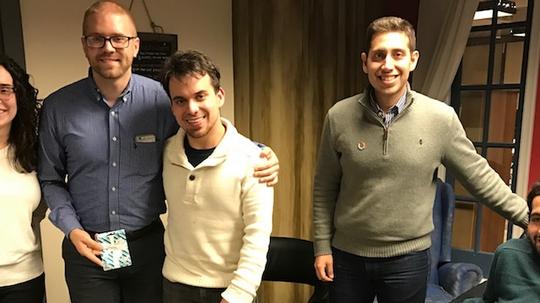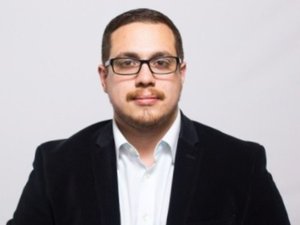
When Diego Mariscal moved to D.C. from Mexico, he didn't quite expect to see the same stigma towards people with disabilities that he saw in his hometown. Mariscal grew up with cerebral palsy, and when he was 7 years old, Mariscal asked another kid on the playground to play. In response, the boy said that his father didn't let him play with "weird kids."
Eventually, that moment would inspire Mariscal to start a disability high school group, which would eventually expand to 15 other schools, as a support network to empower people with similar experiences. That group turned into a nationwide not-for-profit organization, now called 2Gethter-International.
2Gether-International took a short hiatus right after Mariscal started at American University in 2011, but soon relaunched in 2012. Its relaunch boasted social campaigns about how police brutality, unemployment or education affect people with disabilities. Campaigns usually happen each quarter or every few months and typically include a sponsor who is related to their campaign topic and a fundraiser of sorts. For example, Blackboard sponsored their campaign about education.
"We’re kind of cause agnostic," Mariscal told DC Inno."We partner and we look for organizations that are trying to do stuff like that and find a way to sponsor a campaign."
That's changing in 2017. Now, Mariscal, who has since transferred to George Washington University, is ready for the group's next venture: partnering and co-founding the Disability StartUP Network to provide resources for people with disabilities to become entrepreneurs. 2Gether-International is being funneled into the program as the not-for-profit organization's first yearlong social campaign, focusing on entrepreneurship.
"People with disabilities face specific problems when it comes to entrepreneurship," Mariscal said. "Such as a lack of funding—it’s more prevalent for people with disabilities because when you grow up with a disability, you have more expenses. Instead of taking summer classes in college, you’re spending time and money going to the doctor, and you have less access to opportunity and capital that way."
The goal behind Disability StartUP is to create a nationwide network of entrepreneurs with disabilities, and it's partnering with Deputy Mayor Courtney Snowden's Project 500 initiative, Gallaudet University and D.C.-based web design company Suego. They plan to approach the stigma around disabled entrepreneurs by addressing three specific topics: access to resources and capital, confidence building and accessibility.
"This past year has really shown us that by focusing on disability and its awareness, we've really honed into something that's hitting a nerve," Mariscal said. "And it allows us to focus on something way more in-depth than if we were focusing on different campaigns."
Disability StartUp hopes to one day create an online platform to support disabled entrepreneurs—one that will guide them through how to start a company and provide resources to do so.
"We don't see a lot of people with disabilities becoming successful entrepreneurs on their own," Mariscal said. "How are you with a disability supposed to aspire to become something when you don't see people like you succeeding?"
"We really believe that by creating an online community, we can tackle those barriers."
Image courtesy of Diego Mariscal.




